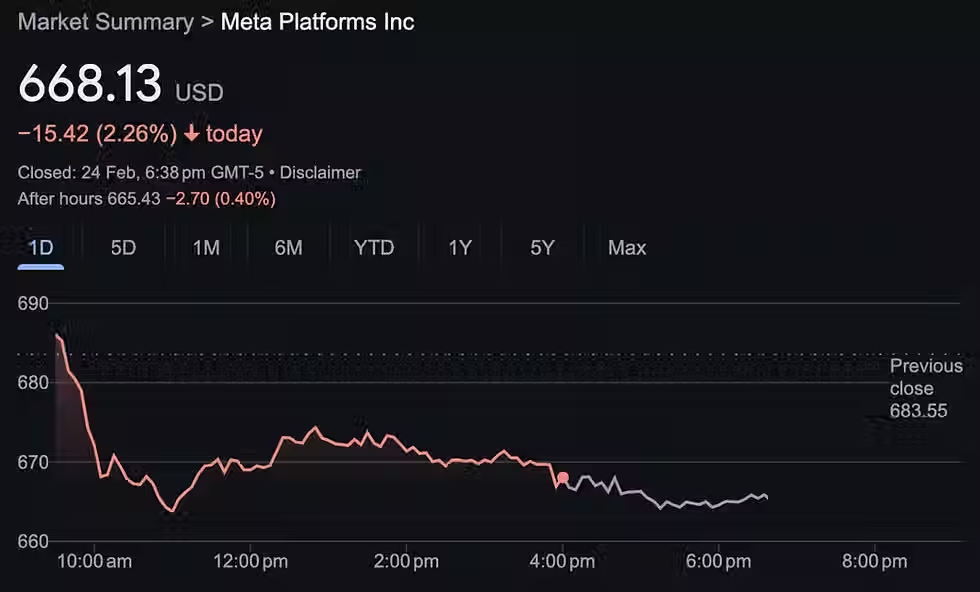Earn Passive Income Through Selling Options
- Buffett Online School

- Oct 20, 2023
- 5 min read

Earning passive income can contribute significantly to building your wealth. You can reinvest this additional income to generate even more passive income, accelerating the growth of your financial portfolio.
Selling options is one of those ways to generate income for building wealth. Generating revenue by selling options is simpler than you may imagine. It's a strategy where you can succeed even if your market prediction is off.
However, it's essential to acknowledge that selling options can also be intricate. Thus, the question arises: Is selling options for income the right choice for you?
You can also watch Chloe Lin's TikTok video on selling options for passive income to broaden your idea about selling options.
At Buffett Online School, we also believe in investing in great companies you understand, and utilizing Free Investing Resources to help you start your financial freedom and investment journey is one of the best ways to learn.
In this article, we'll discuss what options selling is, ways to do it, and its benefits and drawbacks so you can make an informed decision before diving into this earning income.
What is Option Selling?
Financial transactions involve both buyers and sellers. In this context, derivatives like Options play a crucial role. Option Selling Strategy consists of an arrangement between two parties who agree to buy or sell an asset at a set price on a future date.
The good thing for the buyer is they're not forced to go through with the deal. On the other hand, the seller has to stick to the agreement. To make up for this commitment, the seller gets a payment, which is called a premium, for taking on the risk of the Selling Options contract.
Two Ways to Sell Options
Put Option Selling
Traders engaged in put option selling hold a positive view of the market and their shares' performance. For buyers of put options, the rewards are diametrically opposite to those of sellers.
In this case, sellers expect the stock price to remain steady or rise above the strike price. Selling puts has appeal due to the upfront cash earned and the potential to avoid purchasing the stock at the strike price.
If, upon option expiry, the stock price surpasses the strike price, traders profit. However, this method of profit generation differs from purchasing puts. With put selling, the maximum profit achievable is equivalent to the received upfront premium.
Call Option Selling
When selling a call option, an individual can buy underlying securities at a predetermined price before a specific date. The seller will receive a premium for agreeing to this arrangement.
It gives the buyer the right to transfer the stock at a designated price before the specified date. The premium becomes the seller's profit if the stock's price increases remains steady, or decreases.
However, if the stock price rises significantly, the seller might lose the entire premium and potentially more.
When involved in call option selling, it's crucial to remember that the potential profit from the trade is capped at the premium received, while the possible loss can be unlimited.
As a result, various call option selling strategies exist, including covered calls, naked calls, and sell-to-close approaches.
How Do You Earn Through Selling Options?
Options trading offers advantages to sellers in several ways. Firstly, it allows the mitigation of risks through hedging. The advantage of options stems from the fact that your loss remains limited regardless of how far the price drops. Secondly, options assist in lowering the expense of holding stocks.
For instance, if you've been holding a stock with a stagnant price, you can sell higher call options. This action earns you a premium and reduces the cost of maintaining that asset.
Thirdly, in terms of efficiency, options are cost-effective. When engaged in Option Selling, the option expires if the spot price is near or at the strike price at expiration. This results in the option seller gaining a premium as income, rendering the contract worthless for the buyer. Additionally, option sellers earn a premium if the spot price is below the strike price again.
Pros and Cons of Selling Options
Before diving into selling options, one must grasp the potential rewards and risks involved. Successful options traders know how to make small, predictable profits while avoiding significant losses. Selling put-and-call option contracts is a serious decision.
Here's a simplified breakdown of the pros and cons of selling options that beginners should know before they start selling options.
Pros of Selling Options
Selling options, either put or call options, present several potential benefits:
Income Generation: Selling an option results in receiving a premium from the buyer, which remains yours, regardless of how you exercise the options.
Increased Likelihood of Profit: Relative to purchasing options, selling options generally offer a higher probability of profit. This is because options can still yield gains for the seller if the underlying security's price remains stable or even experiences a slight move against the position.
Capitalizing on Time Decay: Options carry an expiration date, and as this date draws near, the time value of the option diminishes, a phenomenon referred to as time decay.
As an option seller, you can take advantage of this time decay, as it reduces the value of the option you sold. Consequently, if you close your position, buying back the options becomes more cost-effective.
Adaptability to Market Conditions: Selling put options can be a viable strategy in a rising or moving sideways market while selling call options can be advantageous in a declining or trading sideways market.
Cons of Selling Options
Selling options might seem like a way to make money, but knowing its drawbacks is essential. Here are some of the main downsides you should be aware of:
Unlimited Risk: One significant risk with selling options is the risk of unlimited losses. When you sell a call option, you could lose a lot because your trading price keeps rising without a limit.
If you sell a put option, there's a chance of significant loss because what you are trading could drop to nothing.
Margin Requirements: Selling options often means you need a margin account. This account lets you borrow money from your broker to cover potential losses. The amount of money you need upfront can be substantial for you.
If you can't meet these requirements, your broker might close your positions, possibly causing a loss.
Possibility of Early Action: When you sell an option, there's a risk that the buyer could use it before its expiration date. It is called an early assignment. If you're not ready for this, it can lead to unexpected losses.
Limited Profit Potential: Even though selling options can make you money, the most you can make is the premium you get when you sell the option. So, even if your trading price moves much in your favor, your profit is still limited to that premium.
Complexity: Selling options is a tricky strategy that needs a deep understanding of how options work. It could be a better choice for beginners; even experienced traders must carefully manage their risk.
Exploring the world of option selling reveals a strategy that can be financially rewarding but comes with its own set of considerations. While selling options can yield income and leverage the concept of time decay, they pose substantial risks, including unlimited losses, margin requirements, and complexities.
Careful assessment of the advantages and disadvantages is crucial for determining if option selling aligns with your financial goals and risk tolerance.
Join Our Free 2-Day BOS Value Investing MBA
At the Buffett Online School, we believe in learning the right investing mindset and system to cultivate emotional detachment and grow our wealth safely and substantially in the long run.
Our next 2-day BOS MBA Value Investing Online Bootcamp is happening soon! We will teach you how to use Warren Buffett's proven investing method to maximize your portfolio.
Remember, you can cultivate the right investing mindset and unlock your potential to build wealth through intelligent investing. Together, we can create a network of educated investors who make informed decisions and contribute to their financial well-being!
In the meantime, feel free to check out some of our blog posts to continue learning. You can also join our BOS Telegram channel for more investing insights!






Your recent post left me truly amazed!
The way you break down complex ideas and make them so easy to understand is remarkable.
When you have a chance, I’d love for you to check out my webpage.
I think our content would mesh beautifully, offering even greater value to our audiences. Keep up the fantastic work!
Elevate your brand with our cutting-edge digital marketing services, designed to drive results.
Exploring the avenue of earning passive income through selling options is a financial strategy that has gained popularity among investors seeking alternative sources of revenue. However, juxtaposing this investment approach with the idea of pay someone to take online classes introduces a contrasting scenario. While selling options offers a legitimate avenue for financial growth, the concept of paying someone to take online classes raises ethical concerns in the academic realm.